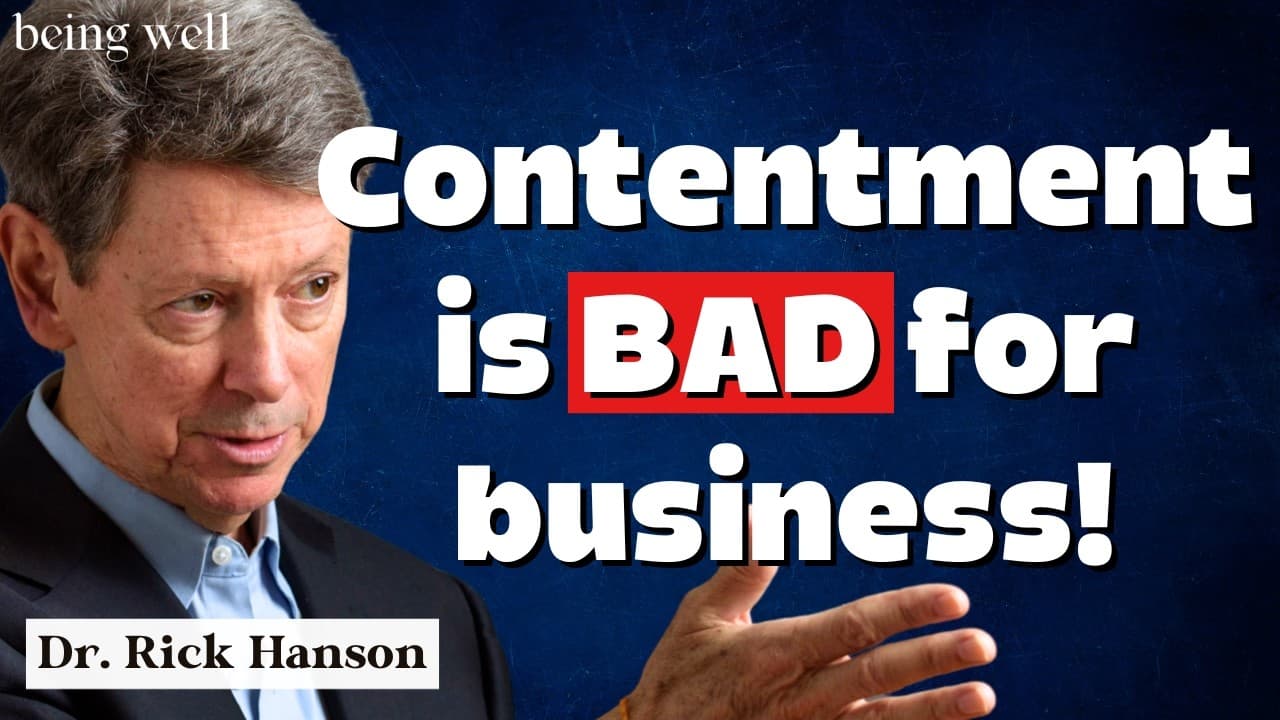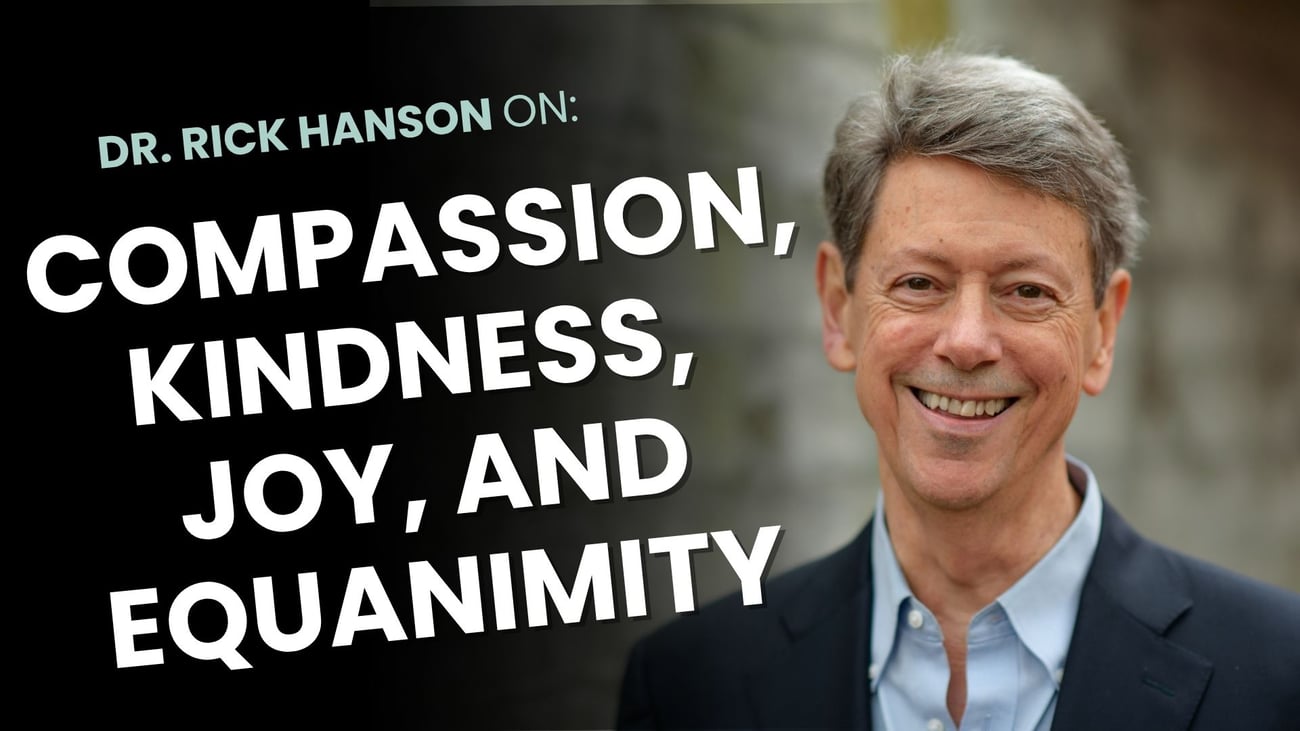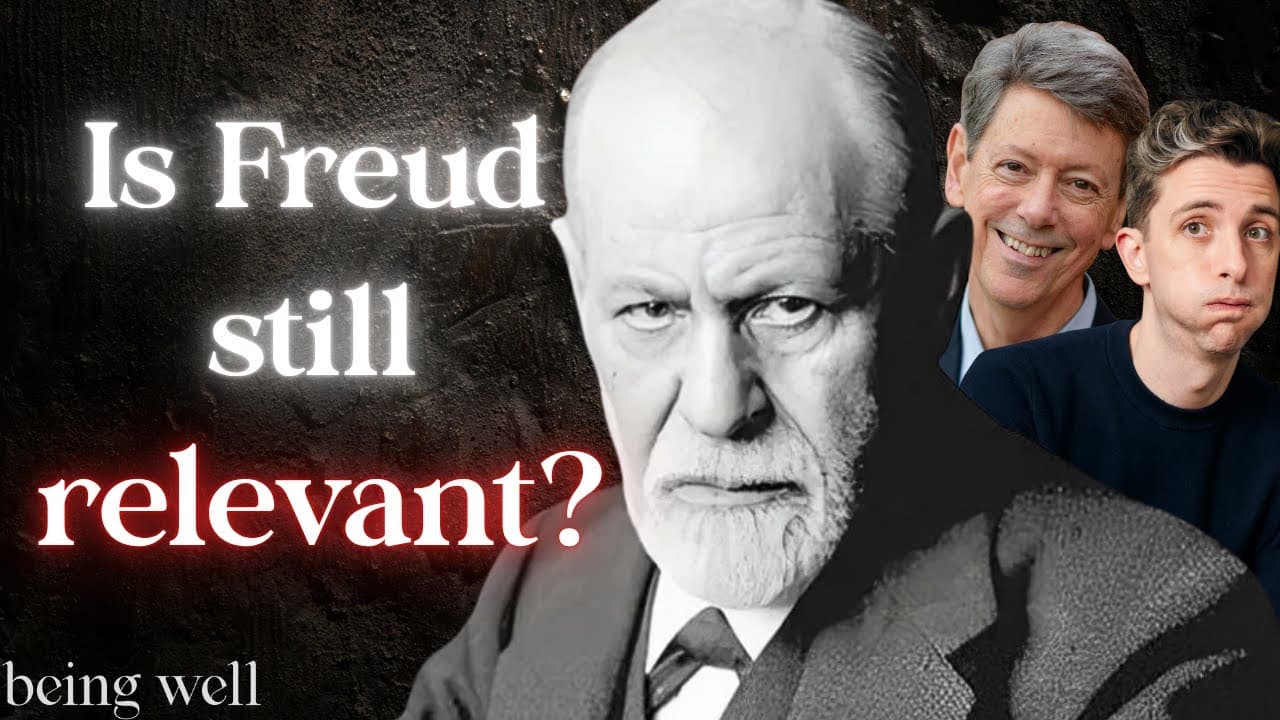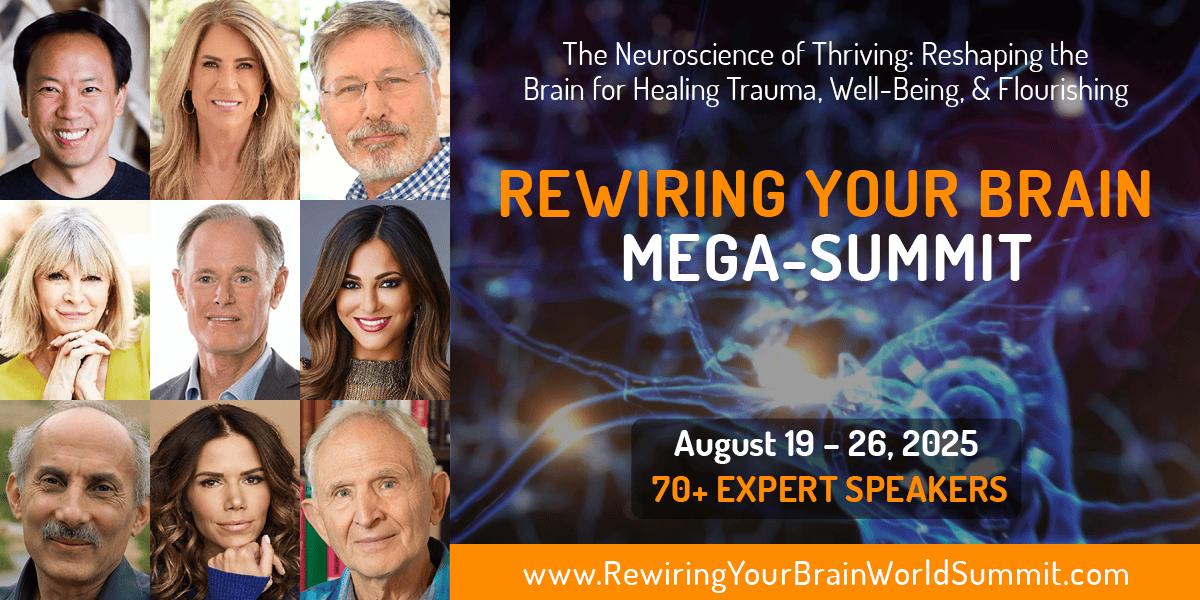|
|
MindFull of GOOD |
 |
|
Dr. Rick Hanson's Occasional Collection of Good, Free Stuff |
|
|
|
NEW ON THE BEING WELL PODCAST: |
Is Self-Help Making You Miserable? |
 |
|
"It was most in my best self-interest to disengage from trying to prove myself to others or to impress them about me, that that was actually the best thing I could do for myself."
— DR. RICK HANSON
|
|
Dr. Rick and Forrest explore what’s really wrong with the self-help industry, going beyond the obvious pseudoscience and snake oil to examine deeper structural issues. They discuss how the industry’s focus on individual responsibility reinforces shame and ignores context, the risks of turning healing into a never-ending project, performative personal growth, narcissism, the role of social media and capitalism in shaping self-help content, the blurred line between honest striving and hustle culture, and their personal experiences navigating their own relationship to the industry. Throughout, they emphasize finding the middle path: balancing agency with awareness, growth with acceptance, and sincerity with skepticism.
|
| Watch/Listen to the Full Episode |
|
|
|
|
|
|
NEW FROM THE WEDNESDAY TALK/MEDITATION: |
Compassion, Kindness, Joy, and Equanimity
|
 |
|
So often, we feel torn between striving for change and surrendering to what is. In meditation—and in life—we can get stuck trying too hard, or give up entirely.
In this talk, I explore how to find a wise balance between deliberate intention and choiceless awareness, and how to grow lasting inner strengths like compassion, kindness, joy, and equanimity. These are qualities we can practice—not just admire.
|
| Check out the Talk & Meditation |
|
|
|
|
|
|
HAVE YOU READ IT YET? |
Buddha's Brain: 15th Anniversary Edition |
 |
|
With more than 500,000 copies in print since it was first published, I'm proud to announce the 15th Anniversary edition of my book Buddha's Brain, which features this new preface.
|
| Get Your Copy |
|
|
|
|
|
|
ALSO NEW ON THE BEING WELL PODCAST: |
Psychoanalysis: Therapy’s Controversial Origins |
 |
|
Dr. Rick and Forrest explore the ideas, context, and legacy of psychoanalysis, the often-controversial origin point for modern therapy. They discuss psychoanalysis’ early history and key concepts like the unconscious mind, repression, inner conflict, and transference. Alongside those major contributions, they wrestle with what hasn’t aged so well: the reductionism, murky ethics, and entanglements with colonialism and the Victorian worldview. This episode is both a tribute to and a critique of psychoanalysis as a rich, flawed, and deeply influential starting point for modern therapy.
|
| Watch/Listen to the Full Episode |
|
|
|
|
|
|
FREE SUMMIT: |
Rewiring Your Brain Mega-Summit |
 |
|
I’m very pleased to be among the presenters for the 2025 Rewiring Your Brain Mega-Summit, from August 19- 26, 2025. This powerful event offers a science-based path to restore balance in the brain, release stored trauma, and integrate proven practices for lasting healing, resilience, and personal growth.
|
| Register for FREE |
|
|
|
|
|
|
ASK RICK: |
Can self-compassion be linked to seeing oneself as a victim?
|
 |
|
There is a very useful distinction between two different meanings, or connotations, of the word “victim.”
In the first and simplest sense, a “victim” is just someone, anyone, who has been assaulted, attacked, or otherwise mistreated. Someone walking in a crosswalk with a green light who is struck by a drunk driver is a victim. There is no shame in being a victim. In fact we should honor victims in this sense! When one has been mistreated – when one has been victimized in the simple factual objective sense – for sure it is appropriate to have compassion for oneself much as we would have compassion for anyone else who had been mistreated – who had in fact been victimized – in the same ways.
|
|
"For most people, the accurate recognition of how they’ve been mistreated along with self-compassion leads to adaptive coping and action, not to helpless immobilization."
|
|
In the second and actually uncommon sense, in some quarters the word “victim” or related terms such as “victim consciousness” carry the context of a kind of indulgence in or usage of the “victim role” to extract sympathy or other things inappropriately from others, or to sort of “wallow” in inappropriate self-indulgent “poor me, woe is me” forms of helplessness. In this particular sense of the word “victim,” self-compassion might get exploited or co-opted in the service of these kinds of inappropriate behaviors.
Frankly I have rarely seen the mis-use of the sense of being mistreated, victimized, or being a victim described in the second sense. The greater problem I have observed is people who really were victimized being dismissive toward themselves or putting up with others being dismissive of them, including others who are prone to reducing and distorting and dismissing actual mistreatment by waving the “oh shame on you, don’t be such a victim” card.
|
|
|
|
|
RICK'S PICK: |
Grateful Note Leaves Server Sobbing
|
|
|
 |
|
Photo credit: @k8tymilla/TikTok |
|
|
Here's a touching story about a server who was left sobbing mid-shift after a grieving couple revealed in a heartfelt note that her kindness helped bring a smile to the wife for the first time since their daughter’s recent passing. |
|
|
|
|
|
|
MindFull of Good is a free newsletter that highlights new and free content from Dr. Rick Hanson and the Being Well Podcast as well as other free offerings to fill yourself up with good. |
|
|
|
|
|
|
|
|
|
|